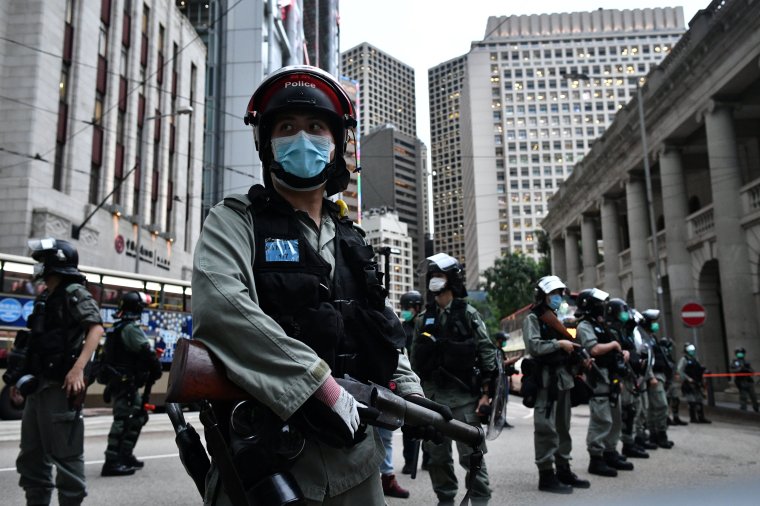A new survey conducted by the Hong Kong Journalists Association (HKJA) and released June 19 showed that an overwhelming majority of journalists in Hong Kong worry about their personal safety if the new national security law is enacted. The legislation, approved by the National People’s Congress in Beijing, would criminalize any act of secession, subversion, terrorism, foreign intervention, and allows Chinese security forces to operate in the city.
The survey found:
- Among 150 respondents, 147 (98%) oppose the legislation.
- 87% of respondents said they believe freedom of the press would be “severely affected” under the legislation; 11% said they believe it would be “affected.”
- More than half of the journalists surveyed said they would be very worried about their personal safety if the legislation passes; 39% said they would be somewhat worried.
- 71% of respondents said they believe the media would cut back on, and 87% said they believe the media would stop, reporting on sensitive political issues; 90% said journalists’ safety would be threatened, and 93% said media outlets would be punished for covering sensitive topics if the legislation is enacted.
- 81% said self-censorship would be “more severe” and 7% said “severe” if the legislation is enacted.
- 63% said they are “very pessimistic” about Hong Kong’s press freedom future; 35% said “pessimistic.”
- 13% said they would consider leaving the media industry if the legislation is enacted.
The survey is available in Chinese here.
In another report, released June 9, the HKJA surveyed 222 journalists about their views and experiences with violence they experienced when covering public order events. The findings of the survey showed that most respondents have encountered violent attacks on the job since June 2019.
The survey found:
- 65.3% of respondents said they have encountered violence from either police or people with different viewpoints–or both–while covering public order events.
- Police’s violent treatment of journalists varies in different degrees. Shining strong flashlights directly at journalists was cited as the most common form of police harassment, followed by verbal insults and jostling.
- Among the respondents who said they have encountered police violence on the job, 57.4% said police had deliberately blocked or tried to take away their filming equipment; more than half of them said they were pepper sprayed and tear-gassed at close distances.
- Among the journalists who said they have encountered violence from people with varying political views, 66.7% said the attacks came from supporters of the establishment and the government, 53.1% from police supporters, and 37% from protesters against the extradition bill.
- Verbal insult was cited as the most common form of attack from people with different viewpoints.
The HKJA survey is available in Chinese here.
